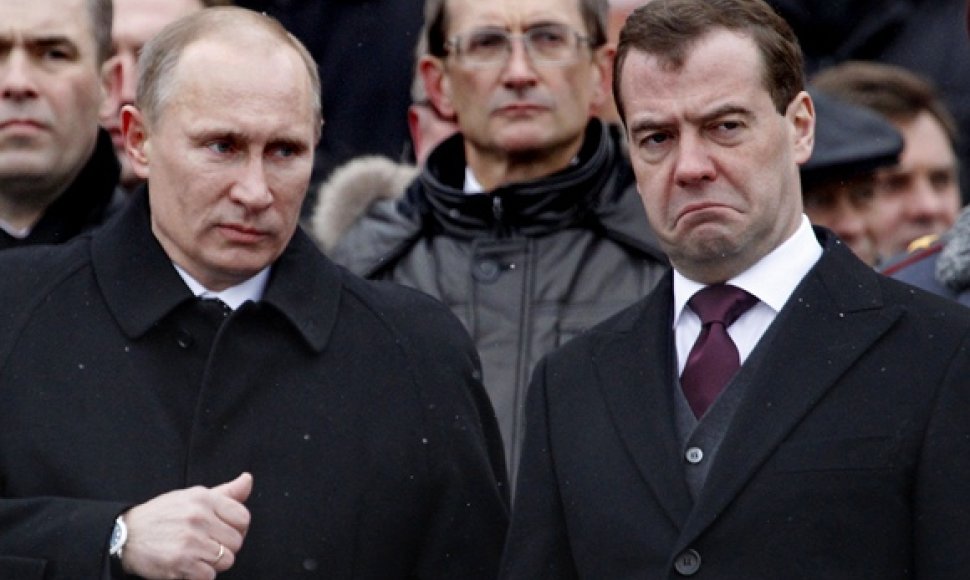"Putin's competitors running for the election have the role of creating the illusion of fair elections. I see no normal competition there and truly regret that there are no signs of democracy in Russia," she said in an interview to Žinių Radijas news radio on Wednesday.
"Any election in Russia is not actual election but merely a political facade," the parliamentary speaker said.
Nevertheless, the recent series of campaigns and demonstrations give some hope of democratization processes in Russia she believes.
Last September, the duo announced their plans to swap places – Putin was named a presidential candidate, while Medvedev intends to take over the prime minister's post.
"The demonstrations involving hundreds of thousands people testify to changes in Russia's internal context, which indeed gives hope that Russia can become more democratic. However, I do not know today whether it is a major step forward," Degutienė told the radio.
Reviewers are certain in Putin's triumph in the presidential race, although it is not clear whether he will win in the first round of elections on Sunday.
Putin, formerly a KGB security police agent, was first elected president in 2000 and replaced Boris Yeltsin in the post. After two terms in office, he passed the Kremlin office to Dmitry Medvedev and took helm of the government.
Last September, the duo announced their plans to swap places – Putin was named a presidential candidate, while Medvedev intends to take over the prime minister's post.
After the presidential tenure was extended to six years, Putin has a theoretical chance of continuing in the presidential position until 2024.












